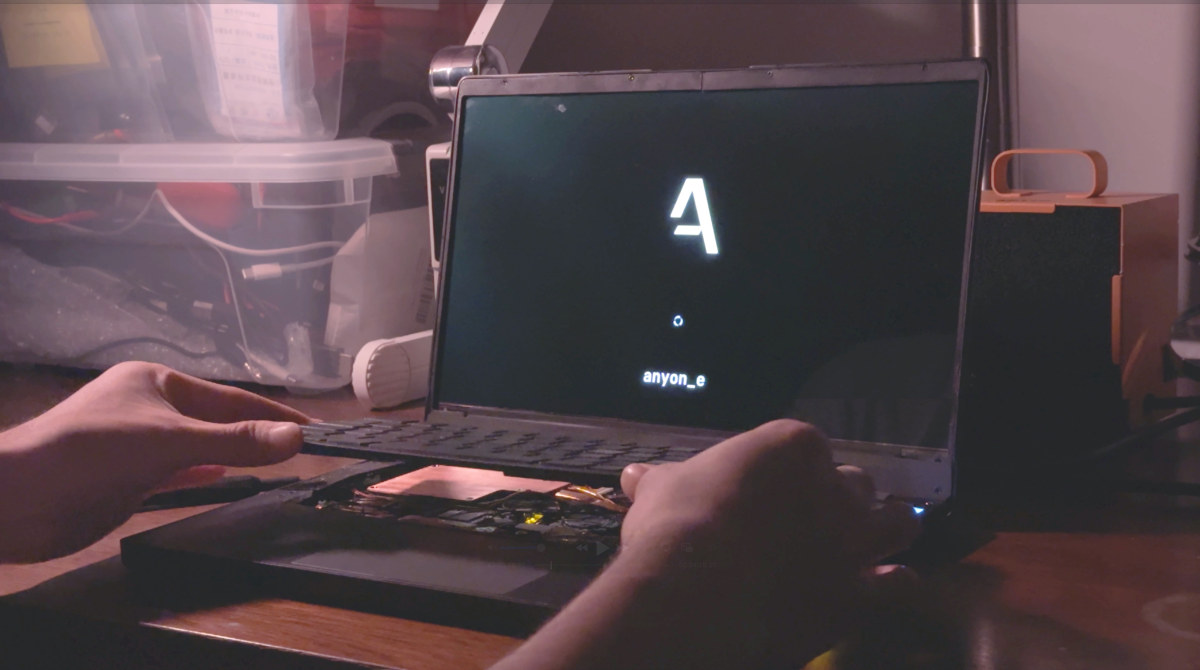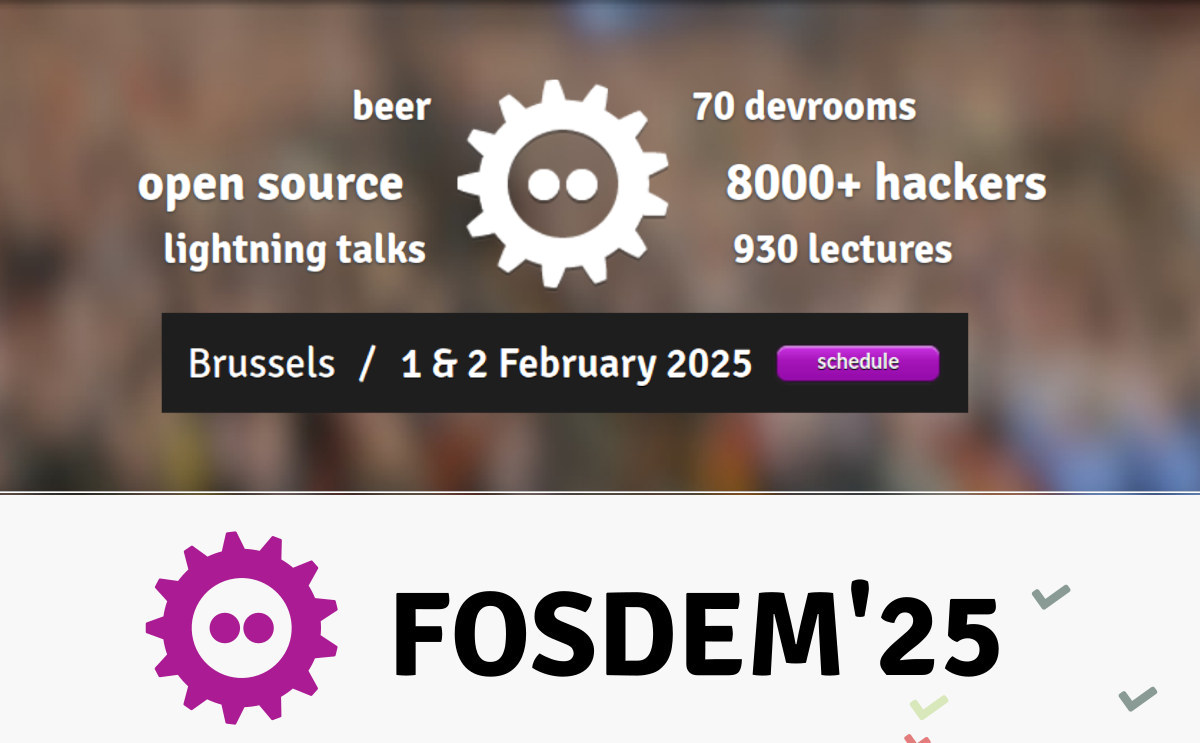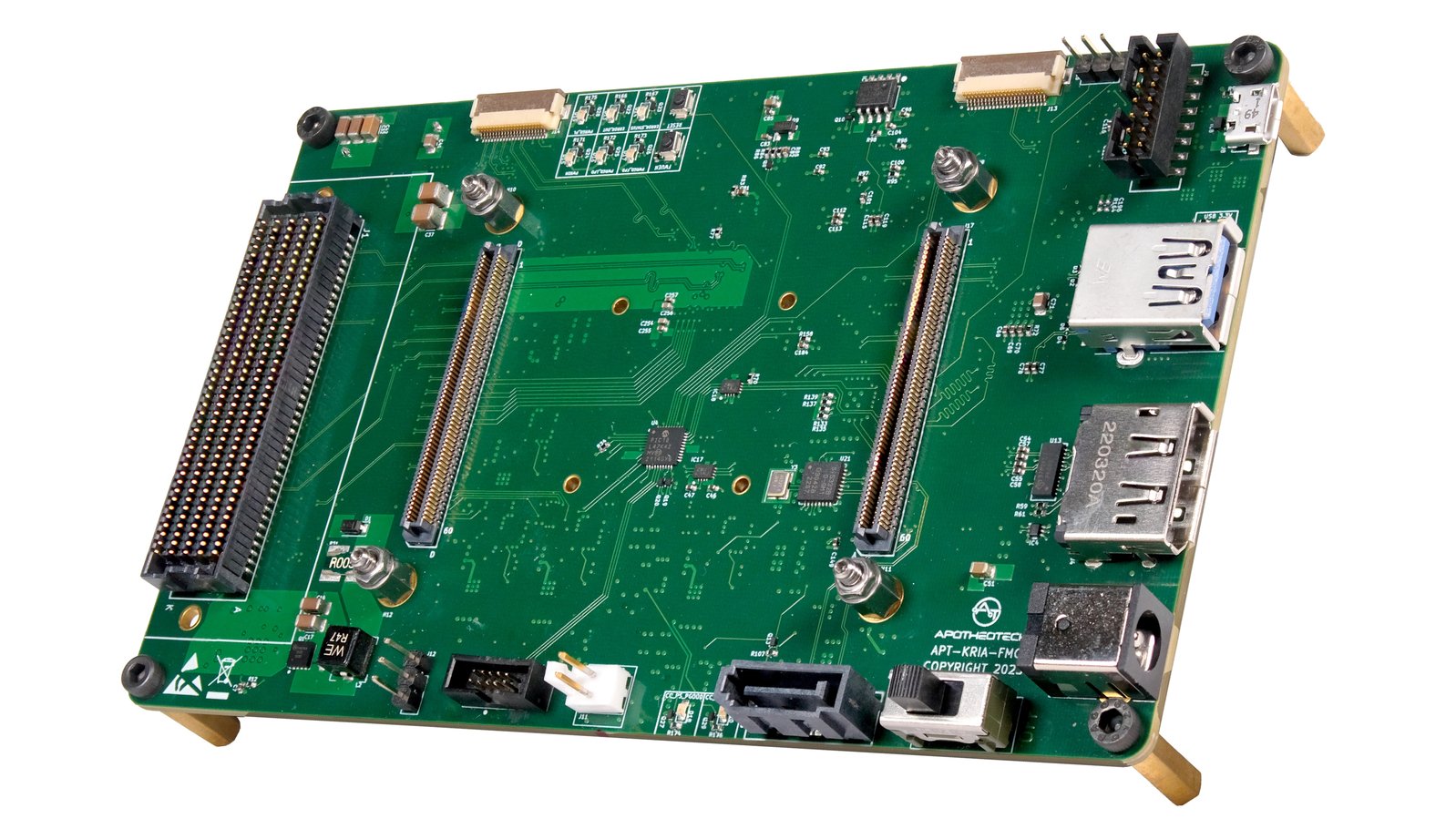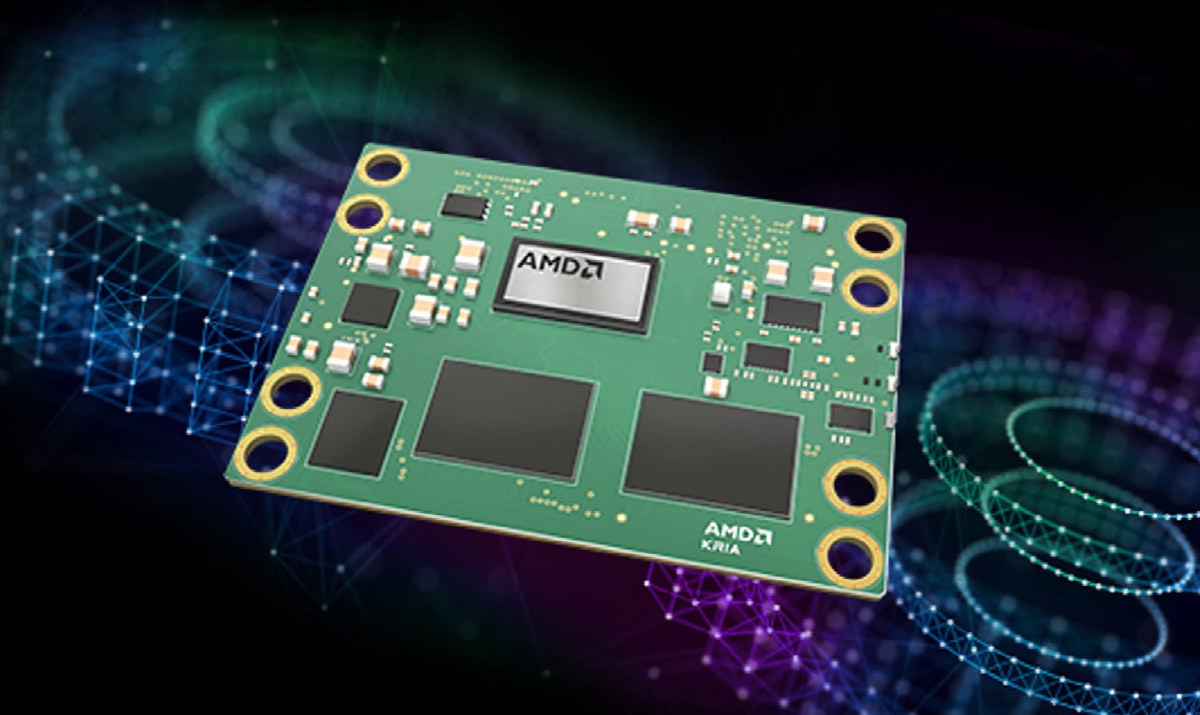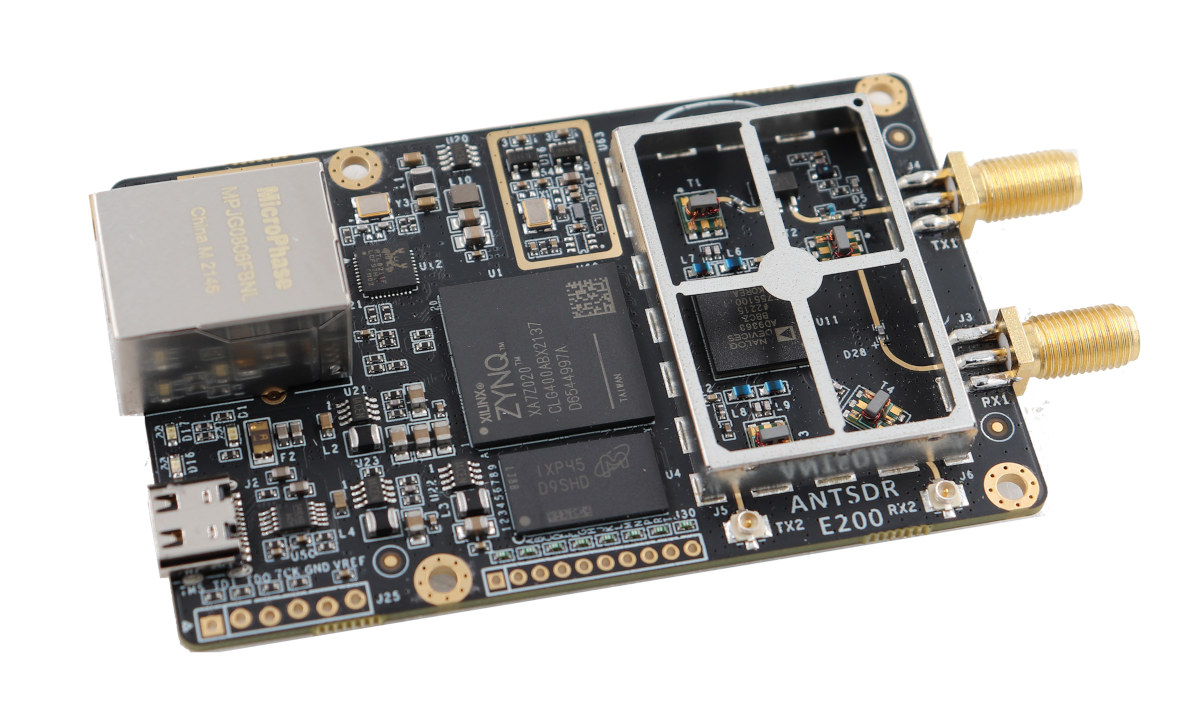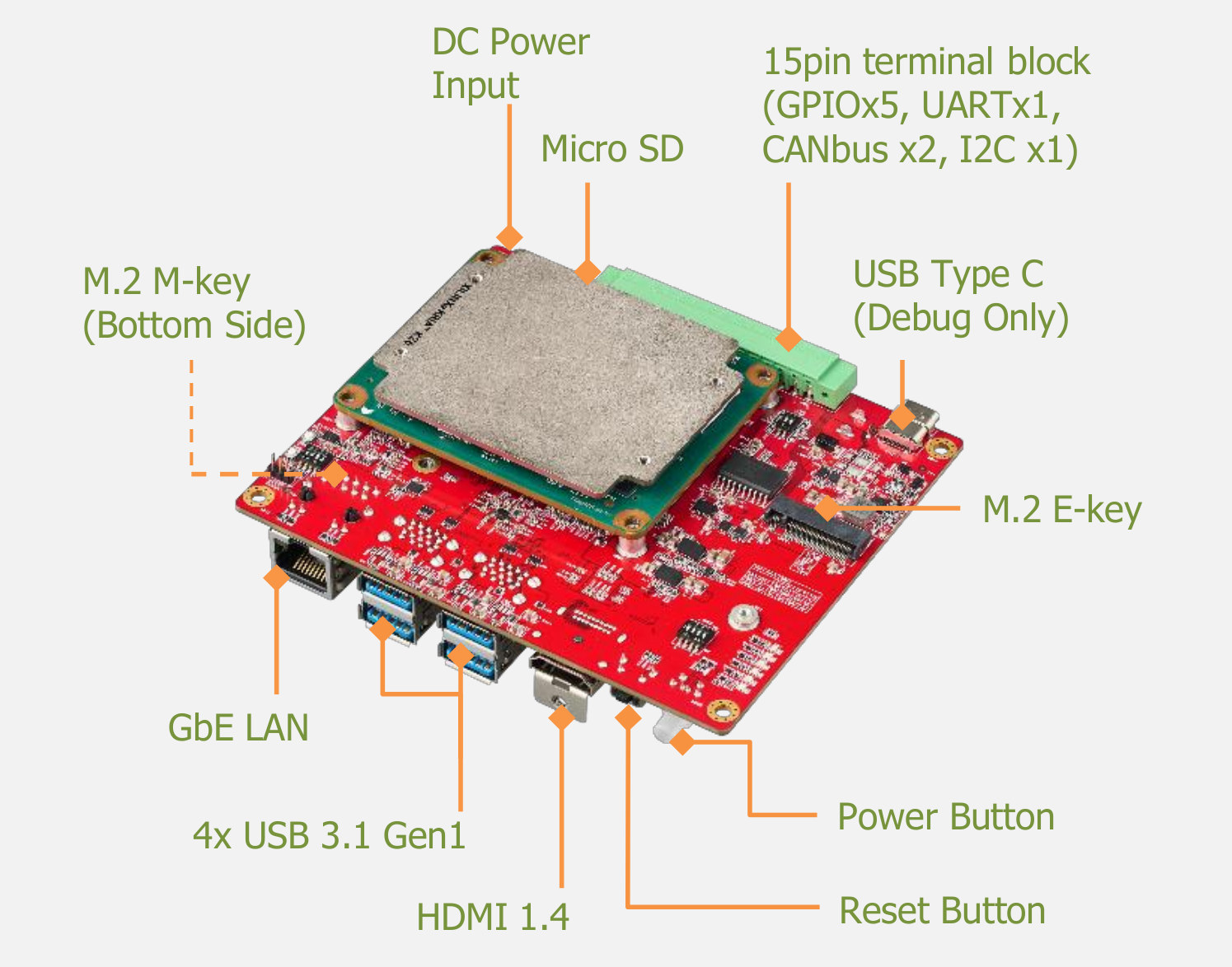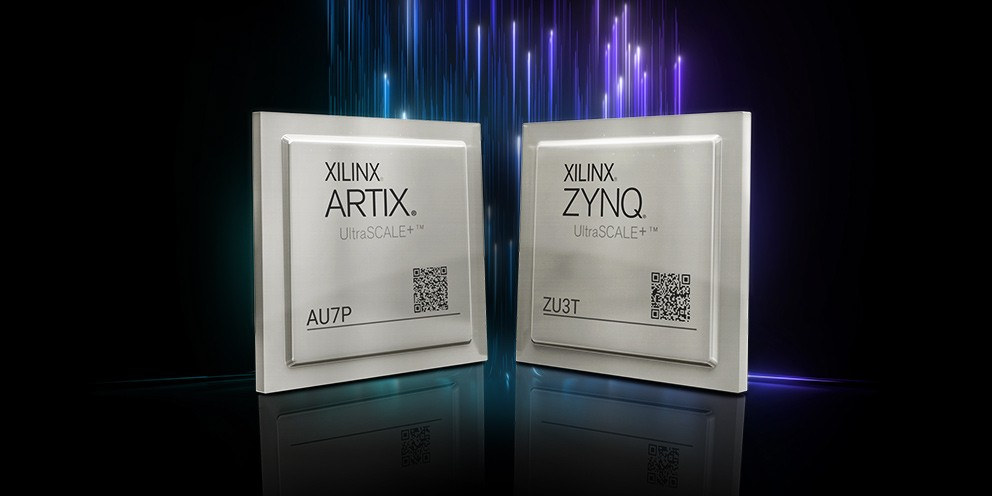We’ve already seen several Rockchip RK3588 laptops with the Cool Pi laptop and GenBook RK3588, as well as the open-source hardware MNT Reform Next. anyon_e is another open-source DIY laptop based on Rockchip RK3588 octa-core Cortex-A76/A55 SoC but with higher-end specifications compared to competitors. The anyon_e features a 13.3-inch 4K AMOLED display, a wireless QWERTY mechanical keyboard, a custom aluminum chassis that keeps the thickness of the laptop to just 18mm, and a battery good for about 7 hours. It’s based on the FriendlyELEC CM3588 core board found in the CM3588 NAS Kit. anyon_e laptop (preliminary) specifications: SoM – FriendlyELEC CM3588 SoC – Rockchip RK3588 CPU – 4x CortexA76 cores @ up to 2.4 GHz, 4x CortexA55 core @ 1.8 GHz GPU – Arm Mali-G610 MP4 GPU Video decoder – 8Kp60 H.265, VP9, AVS2, 8Kp30 H.264 AVC/MVC, 4Kp60 AV1, 1080p60 MPEG-2/-1, VC-1, VP8 Video encoder – 8Kp30 H.265/H.264 video encoder […]
Raspberry Pi 5 edge AI computer ships with 8GB RAM, Hailo-8 AI module, supports Frigate NVR
Seeed Studio’s reComputer AI R2130-12 is an Edge AI computer with a Raspberry Pi 5 SBC with 8GB RAM and a Hailo-8 module with 26 TOPS of AI performance, suitable for video analytics, machine vision, and intelligent edge computing. The computer comes with a HAT+ with two M.2 sockets, one occupied by the Hailo-8 AI accelerator and the other available for an M.2 NVMe SSD. In some ways, it’s just a nicely packaged Raspberry Pi 5 SBC with Hailo-8 AI accelerator that we reviewed last year. reComputer AI R2130-12 specifications: SBC – Raspberry Pi 5 with 8GB RAM AI Processor – Hailo-8 M.2 AI accelerator module with 26 TOPS Storage microSD card slot, with support for high-speed SDR104 mode Optional M.2 NVMe SSD via M.2 PCIe 3.0 slot Video Output – 2x micro HDMI ports up to 4Kp60 Camera/Display I/F – 2x 4-lane MIPI camera/display transceivers Networking Gigabit Ethernet RJ45 […]
FOSDEM 2025 schedule – Embedded, Open Hardware, RISC-V, Edge AI, and more
FOSDEM 2025 will take place on February 1-2 with over 8000 developers meeting in Brussels to discuss open-source software & hardware projects. The free-to-attend (and participate) “Free and Open Source Software Developers’ European Meeting” grows every year, and in 2025 there will be 968 speakers, 930 events, and 74 tracks. Like every year since FOSDEM 2015 which had (only) 551 events, I’ll create a virtual schedule with sessions most relevant to the topics covered on CNX Software from the “Embedded, Mobile and Automotive” and “Open Hardware and CAD/CAM” devrooms, but also other devrooms including “RISC-V”, “FOSS Mobile Devices”, “Low-level AI Engineering and Hacking”, among others. FOSDEM 2025 Day 1 – Saturday 1 10:30 – 11:10 – RISC-V Hardware – Where are we? by Emil Renner Berthing I’ll talk about the current landscape of available RISC-V hardware powerful enough to run Linux and hopefully give a better overview of what to […]
Aper-Oculus is an open-source camera development board for AMD Xilinx’s Kria SoM (Crowdfunding)
The Aper-Oculus board is an open-source hardware camera carrier board for the AMD Xilinx Kria system-on-modules aimed at high-speed computer vision applications. The carrier board is built around the Sony SLVS-EC (Scalable Low-Voltage Signaling with Embedded Clock), a high-speed interface standard that delivers high-resolution video output to the FPGA. It also features several connectivity options, including dual MIPI connectors, USB 3.0, DisplayPort, and SATA to accommodate the varying demands of AI and robotics projects. The Kria K24 and K26 SOMs are adaptive system-on-modules designed for edge and vision applications. These small modules are ruggedized and come with hardware acceleration enabled out-of-the-box. The Kria lineup also includes a series of starter kits, such as the KR260 Robotics Starter Kit, which are designed for early evaluation and development. Aper-Oculus specifications: Processor-Board Support – Compatible with AMD Xilinx Kria SOMs Video Interface – SLVS-EC for high-speed, high-quality video input Expansion – FMC connector […]
AMD Kria K24 Zynq Ultrascale+ system-on-module targets motor control and DSP applications
The AMD Kria K24 System-on-Module (SOM) with a custom-built Zynq UltraScale+ MPSoC and the KD240 Drives Starter Kit are designed for the development of cost-sensitive industrial and commercial edge applications. The new Kria K24 is about half the size of a credit card and uses half the power of the larger, but connector-compatible, Kria K26 SOM that was introduced in 2021 for computer vision applications when the company was still known as Xilinx. That means existing K26 carrier boards can be reused with the Kria K24 SOM without modifying the PCB, but note there’s only one 240-pin connector on the new module, plus an extra 40-pin connector. AMD Kria K24 specifications: MPSoC – Custom-built Zynq Ultrascale+ XCK24 Quad-core Arm Cortex-A53 processor up to 1.3 GHz Dual-core Arm Cortex-R5F real-time processor up to 533 MHz Mali-400 MP2 GPU up to 600 MHz FPGA fabric with 154K logic cells AMD Deep Learning […]
AntSDR E200 – Gigabit Ethernet connected SDR with Xilinx Zynq SoC FPGA supports 70 MHz – 6 GHz range (Crowdfunding)
We’ve just written about the uSDR M.2 SDR module on Crowd Supply, but it turns out the crowdfunding platform is hosting another SDR (Software-Defined Radio) project with the AntSDR E200 board equipped with an AMD Embedded Zynq 7020 SoC FPGA and an Analog Devices AD9363 or AD9361 RF chipset, and providing Gigabit Ethernet connectivity to the host. The board can operate in the 70 MHz – 6 GHz range with the AD9361 chipset, and the 325 MHz – 3.8 GHz range with the AD9363, supports 2×2 MIMO with two SMA antenna connectors and two U.FL connectors, and also features expansion interfaces for GPIOs. AntSDR E200 specifications: SoC FPGA – AMD Embedded/Xilinx Zynq 7020 dual-core Arm Cortex-A9 processor and FPGA with 85K logic cells, 4.9Mb Block RAM, 220 DSP slices System Memory – 512MB DDR3 Storage – 256 Mbit QSPI flash for firmware; microSD card slot (bottom side) RF Chipset – […]
Innodisk EXMU-X261 FPGA Machine Vision Platform is based on AMD Xilinx Kria K26 SoM
Innodisk, better known for its embedded storage and memory chips, had announced its intention to turn to the AI market earlier and started with the launch of USB camera modules last month, but the company has gone a step (or two, or three) further with the introduction of the EXMU-X261 FPGA machine vision platform. The EXMU-X261 is powered by an AMD Xilink Kria K26 system-on-module and features HDMI 1.4 video output, Gigabit Ethernet, four USB 3.1 Gen 1 ports for the cameras and other peripherals, as well as two M.2 sockets and a terminal block for expansion. EXMU-X261 specifications: System-on-module – AMD Xilinx Kria K26 FPGA module powered by a Zynq UltraScale+ XCK26 FPGA MPSoC with a quad-core Arm Cortex-A53 processor, up to 250 thousand logic cells, and a H.264/265 video encoder/decoder Storage – MicroSD card socket Video Output – HDMI 1.4 port Networking – Gigabit Ethernet RJ45 port USB […]
AMD unveils low-cost Artix UltraScale+ AU7P FPGA and Zynq UltraScale+ ZU3T MPSoC
AMD has added two new low-cost, low-power members to its UltraScale+ family with the Artix UltraScale+ AU7P FPGA and the Zynq UltraScale+ ZU3T MPSoC. Both devices are manufactured with the 16nm FinFET process and offer entry points to the transceiver-based UltraScale+ family with features such as high I/O-to-logic density, UltraRAM, DSP, and more. AMD Artix UltraScale+ AU7P FPGA The new AU7P FPGA is the smallest from the Artix UltraScale+ family with four 12.5Gbps transceivers, up to 82K system logic cells, 216 DSP slices, 4.9 Mbit RAM, and 248 I/Os. It is offered in a 10.5 x 8.5mm InFO package. The company says the chip provides up to 50% lower static power, 20% more I/O-to-logic ratio, and twice as many 3.3V HDIO compared to the AU10P device. The AU7P is designed for space-constrained and/or power-sensitive applications such as medical imaging, machine vision, professional cameras/monitors, and automotive radar/lidar. More details may be […]


